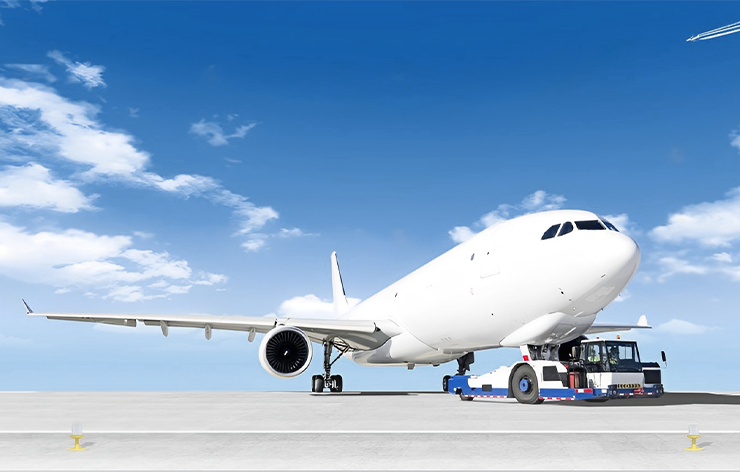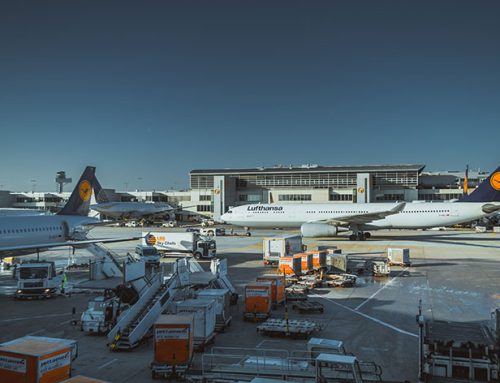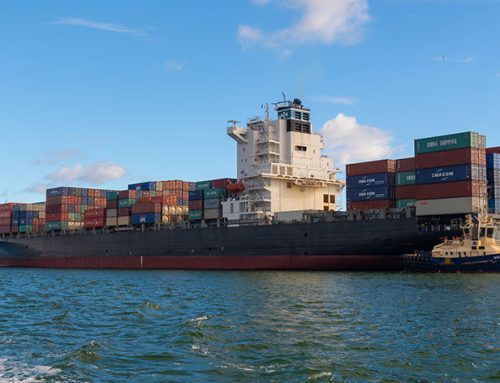Ex Works (EXW) Defined, Pros and Cons, Plus More Incoterms
What Is Ex Works (EXW)?
Ex Works (EXW) is an international trade term that describes when a seller makes a product available at a designated location, and the buyer of the product must cover the transport costs. Ex Works (EXW) is one of the 11 current Incoterms (International Commercial Terms), a set of standardized international trade terms published by the International Chamber of Commerce.1
KEY TAKEAWAYS
- Ex Works (EXW) is a shipping arrangement in which a seller makes a product available at a specific location, but the buyer has to pay the transport costs.
- Once buyers have their goods, they are responsible for other risks, such as loading them onto trucks, transferring them to a ship or plane, and meeting customs regulations.
- Ex Works is an Incoterms (International Commercial Terms), one of 11 standardized international trade terms published by the International Chamber of Commerce.
Understanding Ex Works (EXW)
Ex Works (EXW) requires a seller to safely package goods, label them appropriately, and deliver them to a previously agreed-upon location, such as the seller’s nearest port. The seller must also help the buyer get export licenses or other required paperwork, although the buyer must pay the actual fees for the documents.
Once the buyer has the goods, it is up to the buyer to cover any expenses and account for any risks that pertain to the goods. Risks could include loading the products onto a truck, transferring them to a ship or plane, dealing with customs officials, unloading them at their destination, and storing or reselling them. Even if the seller helps the buyer by loading the product onto a ship, it’s still up to the buyer to pay if anything goes wrong during the loading.
Important : With Ex Works, the seller can load the goods on the buyer’s designated method of transport but is not required to do so; all the seller is required to do is make the product available at a selected location while the buyer pays for transport.
Example of Ex Works
Ex Works costs are calculated by businesses that want to cut costs by removing the so-called seller’s value-added for shipping. For example, suppose company A has priced a pair of printers from company B at $4,000, with an Ex Works shipping cost of $200. To save money, company A finds a third-party shipper to deliver the printers for $170. So to save the $30 on shipping, they make an Ex Works deal with company B.
An Ex Works agreement differs from a Free-on-Board (FOB) agreement, in which the seller covers the cost of getting its goods to a shipping terminal and pays all the customs costs to get them on board. Meanwhile, the buyer still has to pay to find, contract, and pay the shipping company, as well as the customs costs incurred when the goods reach their country of destination. In addition, the buyer also pays the insurance costs.
In practice, Ex Works is sometimes not beneficial due to the customs rules of certain jurisdictions. In the European Union, for example, a non-resident individual or corporation cannot finish the export declaration documents, so the buyer could be left stranded. In such cases, the free carrier (FCA) term is preferable. Free Carrier means the seller is responsible for delivering goods to a specific destination.
Ex Works vs. FOB
Ex Works is the obligation on the buyer’s part to incur the costs of loading goods for transport. Free on Board (FOB) is the term used to refer to the seller’s obligation to load goods. Generally, FOB transfers ownership of goods to the buyer once they are loaded on the buyer’s transportation method. However, there is a possibility that the seller might remain responsible for them during transport to the final destination—this depends on the contract and the terms the buyer and seller have agreed on.
Responsibilities Under Ex Works
Under EXW, the buyer assumes most of the responsibilities once they collect the purchased goods from the seller. Some of the responsibilities transferred include:
- Loading charges: Any costs for loading goods at the pickup point
- Delivery to the port of origin: Costs for transporting goods to the port for shipping
- Customs export fees: Any costs associated with duties, tarrifs, and documentation
- Loading on carriage: Costs for loading goods on the shipping method
- Carriage charges: Any shipping costs for moving goods between ports
- Insurance: If needed or desired
- Customs import fees: Any costs associated with duties, tarrifs, and documentation
- Terminal charges: There may be charges at the arrival terminal
- Destination delivery: The costs for delivering goods from the arrival port to the final destination
- Unloading: Cost to unload goods, such as labor and equipment.
Sellers in an EXW agreement, in contrast to buyers, have very few responsibilities. Generally, they are responsible for packing the goods to be loaded and transported and providing a place for the buyer to pick them up.
Advantages and Disadvantages of Ex Works
Advantages
- Allows buyers to consolidate multiple purchases
- Ability to anonymize a supplier
- Least expensive option
- Allows buyers to purchase in the domestic market
Disadvantages
- Buyer assumes all risk and costs
- Need a trusted representative in the country goods are purchased from
- You might pay more than intended if you’re unfamiliar with the process and costs
Advantages Explained
- Allows buyers to consolidate multiple purchases: Consolidating purchases from various suppliers helps buyers with the costs after goods are loaded at pick-up locations. Buyers need fewer containers or transportation methods to get the goods to the port of arrival and delivery.
- Ability to anonymize a supplier: Goods can be shipped under an incoterm or different exporter name to keep your supplier anonymous if you have competition that might be watching.
- Least expensive option: The costs to the seller are lower, so you’re not paying for their increased costs through markups to cover expenses.
- Allows buyers to purchase in the domestic market: If you’re sourcing in a market where there isn’t a strong exporting presence, you can more easily find the goods you need in the domestic market.
Disadvantages Explained
- Buyer assumes all risk and costs: You’re responsible for all costs, damages incurred during transportation, and inheret the risk of loss.
- Need a trusted representative in the country goods are purchased from: Because you’re purchasing in another country, you’ll need a representative you trust to ensure goods are present, delivered as promised, loaded, and shipped.
- You might pay more than intended if you’re unfamiliar with the process and costs: If you’re unfamiliar with the costs and transportation of EXW, you may end up paying more than you thought you would.
Incoterms
Ex Works, Free on Board, and Free Carrier are all part of the International Chamber of Commerce’s Incoterms. They are used in international trade contracts to outline matters, including the time and place of delivery and payment, when the risk of loss shifts from the seller to the buyer, and the party responsible for paying the freight and insurance costs. The Incoterms aren’t actual contracts and don’t supersede the governing law in their jurisdiction. Incoterms can be modified by explicit clauses in a trade contract.1
Incoterms were first established in 1936, and the current version—Incoterms 2020—has 11 terms. These are often identical in form to domestic terms, such as the American Uniform Commercial Code, but may have different meanings. Additionally, other countries and jurisdictions that govern import and export may have different methods of calculating duties on shipping based on their Incoterms. As a result, parties to a contract must indicate the governing law of their terms.1
What Does Ex Works Mean in Incoterms?
Ex Works is a term used in shipping arrangements where the seller is only required to deliver goods at a predetermined location, and the buyer bears responsibility for shipping costs. Along with these costs, the buyer assumes responsibility for the related risks of the goods, which may include anything from customs regulations to loading and transferring to other ships. Ex Works falls under the Incoterms (International Commercial Terms), a standard framework of 11 terms designed to clarify various trade contracts.
What Is the Difference Between Ex Works and FOB?
In shipping arrangements, the difference between Free on Board and Ex Works is based on transferring the liability of goods between the buyer and seller. In free-on-board contracts, the seller takes responsibility for bringing goods to a terminal in addition to customs costs and loading the goods onto the ship. The buyer, meanwhile, is liable for shipping costs, insurance, and customs costs at the final point of arrival. In other words, once the goods are shipped, the buyer assumes liability and ownership of the goods, known as “FOB origin” or “FOB shipping point.” By contrast, in an Ex Works agreement, the seller is only responsible for delivering goods to an agreed-upon location.
What Does Ex Works Mean for Shipping?
With an Ex Works agreement, the seller saves on shipping, customs, and liability for damaged goods after being delivered, packaged, and labeled at the shipping terminal. While this may be optimal sometimes for sellers, it is not always possible due to customs requirements in certain jurisdictions. Take the European Union, for example, which restricts non-resident corporations from completing export declaration forms. In this case, an Ex Works contract would be detrimental to both the seller and the buyer. In contrast, a free carrier contract that bears shipping responsibility on the seller could offer a more suitable alternative.





Leave A Comment